Alopecia areata is a condition that affects 6.8 million people. It isn’t talked about much in the public eye, nor is it considered a disability or a treatable illness. Alopecia is a rare but non-life-threatening autoimmune disorder where the body’s immune system attacks its own hair follicles leading to baldness in random patches, and sometimes, throughout the entire body. It can affect people of any age and there is no cure.
What most people don’t talk about alopecia is that living with the condition can lead to major identity crises. This is caused by the inability to adopt a natural new look, or worse, wake up to see sudden chunks of hair loss. The stigma associated with balding, or the fears of being treated as having something much worse like leukemia, is very common.
Alopecia leads to some pretty severe psychological issues for almost everyone affected. Common mental health problems for those affected include depression, anxiety, and suicidal ideation, especially in women, where hairstyle is often seen as a symbol of beauty. Even more so for black women of color, of which, alopecia is much more common.
People with alopecia make a lot of cosmetic changes to their appearance in order to fit in and feel normal. There is a need for wigs, fake eyebrows or hair implants (which often get rejected, mind you). Things that instill a physical feeling of belonging using artificial means, or else drawing ire from others as if something was wrong with you. I know this because I’ve lived with Alopecia Universalis almost my entire life. And just like Jada Pinkett Smith confessed in 2018, I have to admit, it’s really not something easy to talk about.
Now, I pitched this story to every major news outlet and source in the country minutes after the event happened. The truth is, just like always, nobody cared. What happened was that the media gave us a bunch of explainer pieces from doctors and experts, explaining to me my own fucking story. Then out of pity, shared the occasional sob pieces and feel good bits of less than 200 words about how we mattered, until after they were done using us for some explainer click-bait traffic agenda, they proceeded to focus in on exactly what they actually cared about: Will Smith, Chris Rock, and Jada.
We had a moment here to talk with the community regarding people with alopecia. Why this matters, this moment, meant so much to us but then got tossed to the side. Instead, the public obsessed over every take regarding Will Smith slapping Chris Rock over an insult against Jada Pinkett Smith. What was going to happen and what it meant for their respective communities: whether it be the Academy’s take, black culture’s take, the comedian’s take, or just people who suffered from alopecia. It’s been a controversial topic talked about with no end all throughout the week, culminating with Will Smith officially retiring from the academy just days after winning his first Oscar.
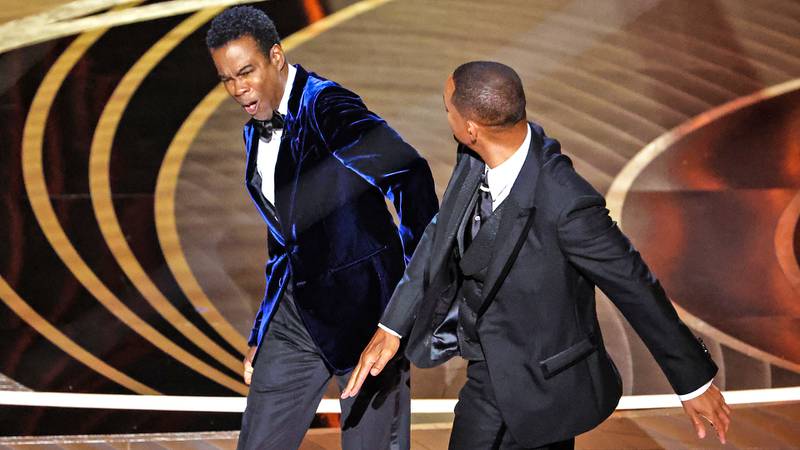
People will remember this for how it ended.
But how it began is a different story…
Early reports, conveniently within the first few hours of the event, spoke about Jada’s medical condition but never actually talked about alopecia until the morning after. This, despite it being something Jada Pinkett has openly struggled with for years. That Chris Rock poked fun anyway, is endemic to a lack of knowledge regarding the struggle of people living with this condition. Though there have been some talks about it, overall, it still misses the issue by a mile.
Because despite there being a large number of us with alopecia, there really isn’t that large of a community support network in the public eye. The NAAF, historically a small support structure, has tackled this issue for so long, but was never really given that many resources nor built as big of a reputation. Being bald seems like a lifestyle choice and visibility for people with the condition is poorly seen.
In fact, Jada Pinkett Smith isn’t even the only person in Hollywood with alopecia.
Stars Who Also have Alopecia
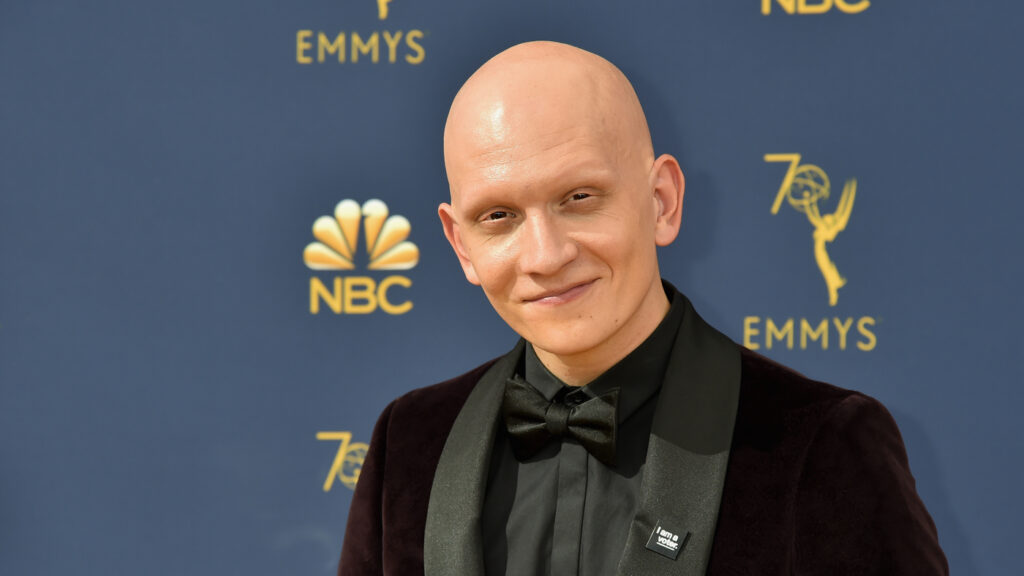
You have Anthony Carrigan, who plays NoHo Hank on HBO’s Barry, and whose career is heavily known for playing eccentric villains such as Victor Zsasz on TV.
Matt Lucas, the British actor, and comedian with Alopecia Universalis is known for his oddball science fiction roles on TV series like Doctor Who. Both men have struggled for years in entertainment, finding the only way out, was to embrace it and sort of fulfilled the role–which to be frank, is often a bad guy, eccentric, or oddball joke.
Then, of course, there’s Viola Davis, one of the most prominent black women actors in the industry, who’s struggled with her alopecia for half her lifetime. Occasionally, you’ll find gems such as dancer Christine Valdiserri, who actively brings about alopecia awareness regarding just about everything that she does.
These are powerful people in entertainment with this condition. All of them have had career derailments because of adjusting to this disorder and have had it shape both who they are and what they do.
There are loads of people condemning Will Smith saying that he could have resolved this issue with a civil discussion behind the scenes. But if that hasn’t worked for Jada in 4 years, let alone all of these people in Hollywood, what chance do the rest of us honestly have?
How It’s Always Been Poked Fun At
In terms of comedy, baldness is an easy and semi-safe potshot to take as a comedian. People with this condition have been made fun of for years and more often than you think.
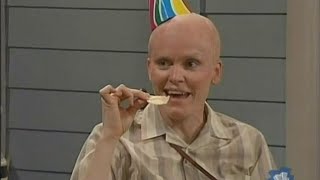 The MAD TV comedian Stephanie Weir with comedian Michael McDonald, had a socially awkward sketch poking fun at people with alopecia on the MAD TV series. SNL has been poking fun at baldness for decades from Brogaine to Bosley Hair Restoration sketches. Most of us with this condition take jokes in stride over years of abuse without honestly saying what truly bothers us: that at some point, especially in the public eye, it absolutely hurts.
The MAD TV comedian Stephanie Weir with comedian Michael McDonald, had a socially awkward sketch poking fun at people with alopecia on the MAD TV series. SNL has been poking fun at baldness for decades from Brogaine to Bosley Hair Restoration sketches. Most of us with this condition take jokes in stride over years of abuse without honestly saying what truly bothers us: that at some point, especially in the public eye, it absolutely hurts.
Most people think being bald is a public choice without realizing that this is anything but, and alopecia, in many ways, is an inability to control what’s happened to our bodies. We didn’t want this nor ask for this, but it is also not objectively hindering us in obvious ways. So often people with my condition just take the jokes in stride due to poor discourse about an issue no one seems to want to talk about. Let alone, think about.
What It’s Like Having Alopecia
I’ve had Alopecia Universalis since I was 10 months old. As a result, I have always felt like an outsider. Not a Filpino, not an Asian American, not a suburban middle-class New Jerseyian, but as a bald kid trying to be his friendliest, hoping that no one says anything about how I am visibly and very blatantly different looking than everyone else.
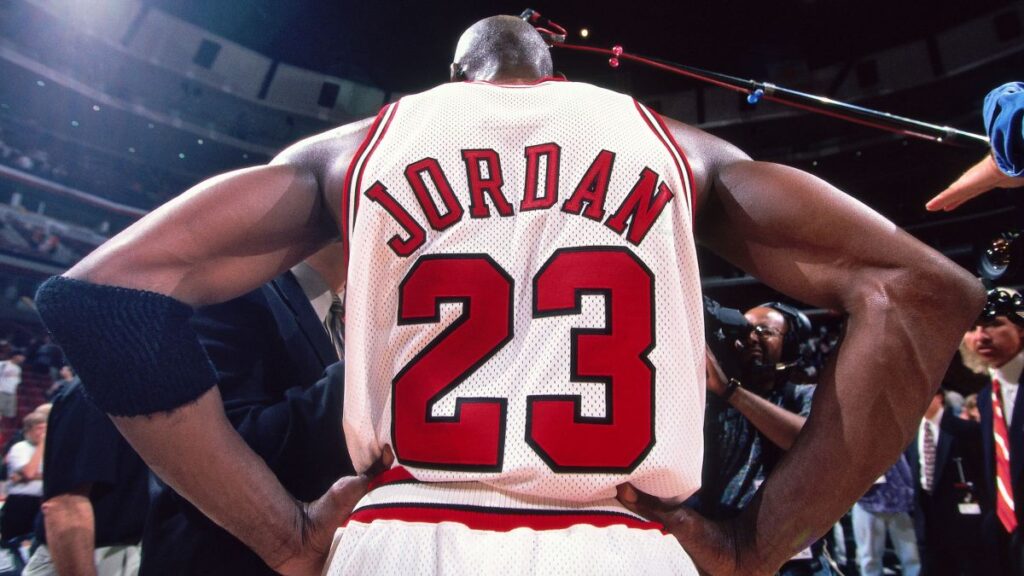
Thankfully, my childhood was in the 1990s, when Michael Jordan chose to shave his head and made this look a lot more acceptable for men. But for women, there really hasn’t been that sort of cultural acceptance. The community for people with alopecia is pretty fragmented and there is very little open discourse about how this condition can devastate your life. You see people like Bill Maher say it’s lucky that we just have this disorder compared to something more serious. Let me tell you what it’s been like living like this my entire life.
I’ve been bullied, made fun of, and questioned as to if I was dying my entire life. I didn’t get to try out different hairstyles in my teens. I didn’t get to experiment with different looks or fit in social cliques or circles. Alopecia sort of kills that sense of progressive growth in puberty. It’s hard to fit in when everyone’s changing and you more-or-less just look the same.
When you have alopecia, you trust the people that do accept you, and then you find it really hard to fit in or feel a sense of belonging. Your identity is just utterly fucked from the moment it happens until the rest of your life really.
I’ve gotten into fights over the way I look. Once, at a bar, I was asked to stop looking at someone in the face because my lack of eyebrows made them feel uncomfortable. Not a little fight mind you, but over three drinks in, ready to toss haymakers outside kind of fight. Do you know how hard it is not to look somebody in the face when you’re talking to them? I’m pretty certain that under different circumstances this would have been considered a hate crime.
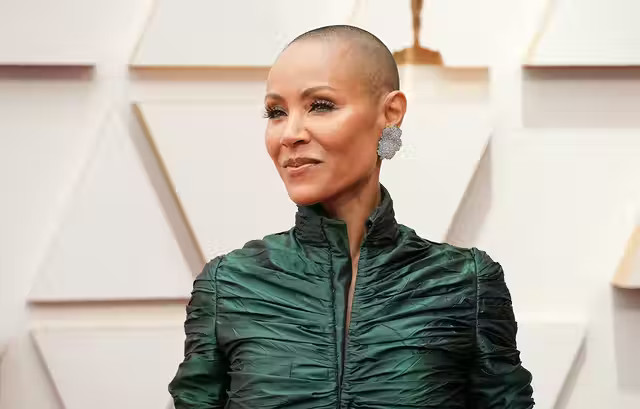
I’ve had things thrown at the back of my head for being bald. My high school bully used to play games of slap-head every day in gym class, which is exactly what it sounds like. One day, he spit a piece of gum at the back of my head as a joke, until I, rightfully so, took that same piece of gum and shoved it directly into his own hair. This is the cruel world that we live in. I took all of these insults in stride for a lifetime because who was I going to confide in or talk to about this?
The only organization that showed any sort of alopecia sympathy I’d encountered in my lifetime was in my 20s. They were a group of white fellow-bald alopecians who’d asked me if I were one of them. And if I was, then maybe I’d like to talk in private. Which was sort of my first red flag. You’d be shocked to hear who these people were.
They were skinheads. A group of white men and women who had alopecia too. I met them in my university of all places. They thought I was white (I’ve been confused as every background you can imagine, from Black, Indian, white, to Asian thanks to not having hair, and depending on how much time I spend outside, having too light or too tan of a skin tone) and asked for me to attend a rally. Because that’s what it’s like for all of us. We’re not the color of our skin, we’re just the bald-headed freaks in a world that doesn’t want to address that it’s an issue.
Why It Matters
Now, to be fair, every case of alopecia is different. I think the media was right in talking to women of color with Jada’s condition and giving light to the struggle of black women losing their hair along with their identity in the process. I just wish there was more said about this outrage and why, I personally think it’s warranted. I mean, even now I still get anxious when people ask me about it over 30 years later, so I have no idea how you expect actors to handle it. Whose job it is to operate in the public eye.
Having alopecia is living in a world where everybody pities you because they think you have cancer. Your image is concealed all the time whether it be through wigs, make-up, or glasses. Nothing about you feels natural. And people spend loads of money and chunks of their entire lives hiding the fact that they have alopecia.
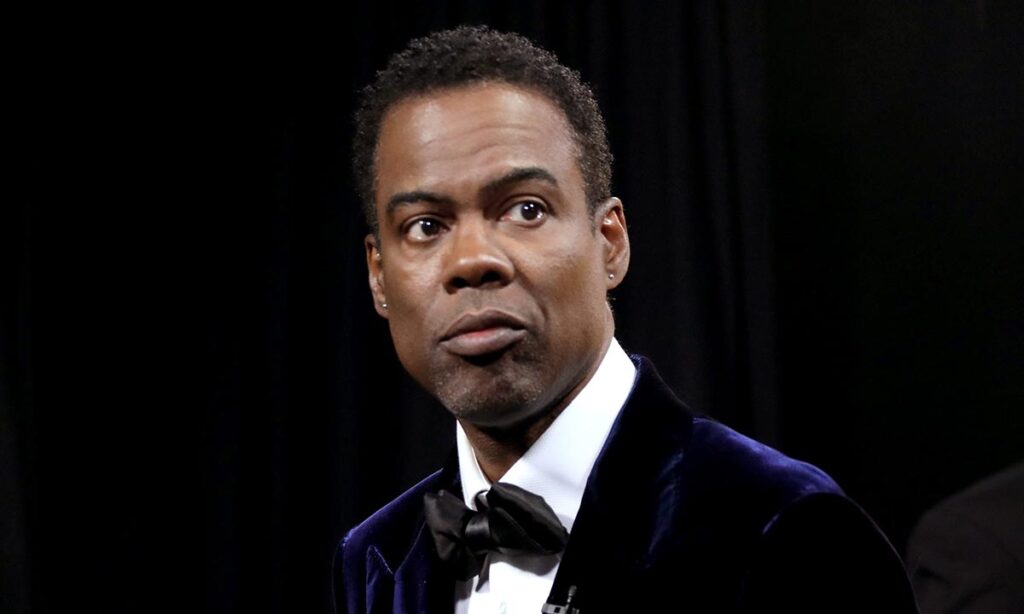
For Chris Rock to just openly draw attention and make a bald joke at someone who openly struggled about it? If I could, yeah, I would have slapped him myself. And I love both Chris Rock and Will Smith and their bodies of work.
I’m tired of everyone making light of people with my condition for what everyone thinks is just a minor issue. Unless people honestly speak out about what it’s like having alopecia in droves, nothing is going to change. Discourse about this topic from Jada or Viola Davis has not done enough regarding awareness of this issue.
I’d ask anyone else out there who’s lived a troubling lifetime with this disorder, such as myself, to speak up about it. Let people know what it’s honestly like: which is… rough.
